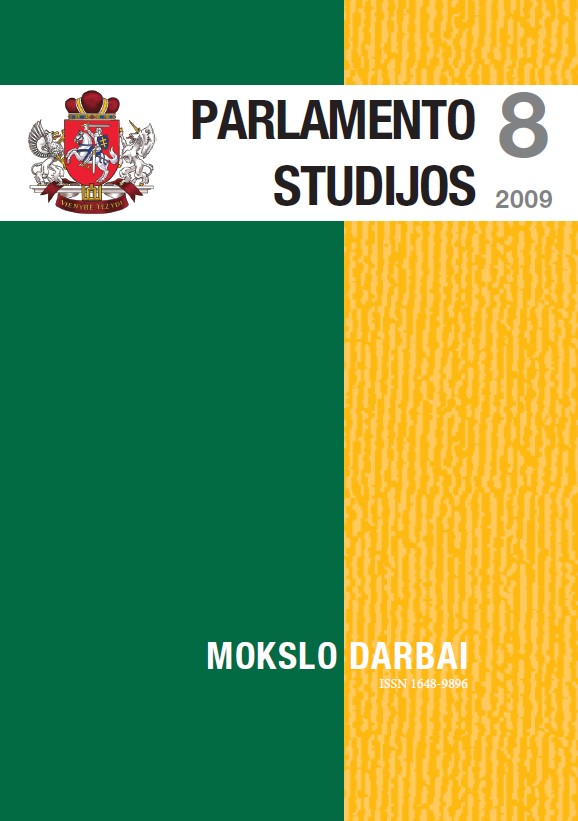Society’s Choice: What Were the Reasons for the Loss/Victory of the 3rd Seimas?
DOI:
https://doi.org/10.51740/ps.vi8.327Keywords:
democracy crisis, constructive and destructive opposition, left-wing, right-wing, coalition government, coup d’etatAbstract
The author analyses the factors which determined the coup d’etat of 1926. Since 1920 the Christian Democrats had been dominating during three consecutive terms of the Seimas (the Constituent, the 1st and the 2nd). Shallow social differentiation and low political-cultural level of the society provided a favourable environment for the development of oppositional powers, which, after the election of the 3rd Seimas, democratically took control of the state. The half-year rule by coalition centrist and left-wing parties was easily interrupted by the takeover executed by nationalist and Roman Catholic powers. Democracy suffered a loss in Lithuania, although the foundations for the development of its statehood remained intact. The development of the state sovereignty acquired features common with those of other East European countries.
The loss of the 3rd Seimas demonstrated that the evolution of parliamentarianism was considerably laying behind the process of social democratization in Lithuania.








 The metadata of the scholarly journals and publications of the Lithuanian National Martynas Mažvydas Library is distributed by
The metadata of the scholarly journals and publications of the Lithuanian National Martynas Mažvydas Library is distributed by 